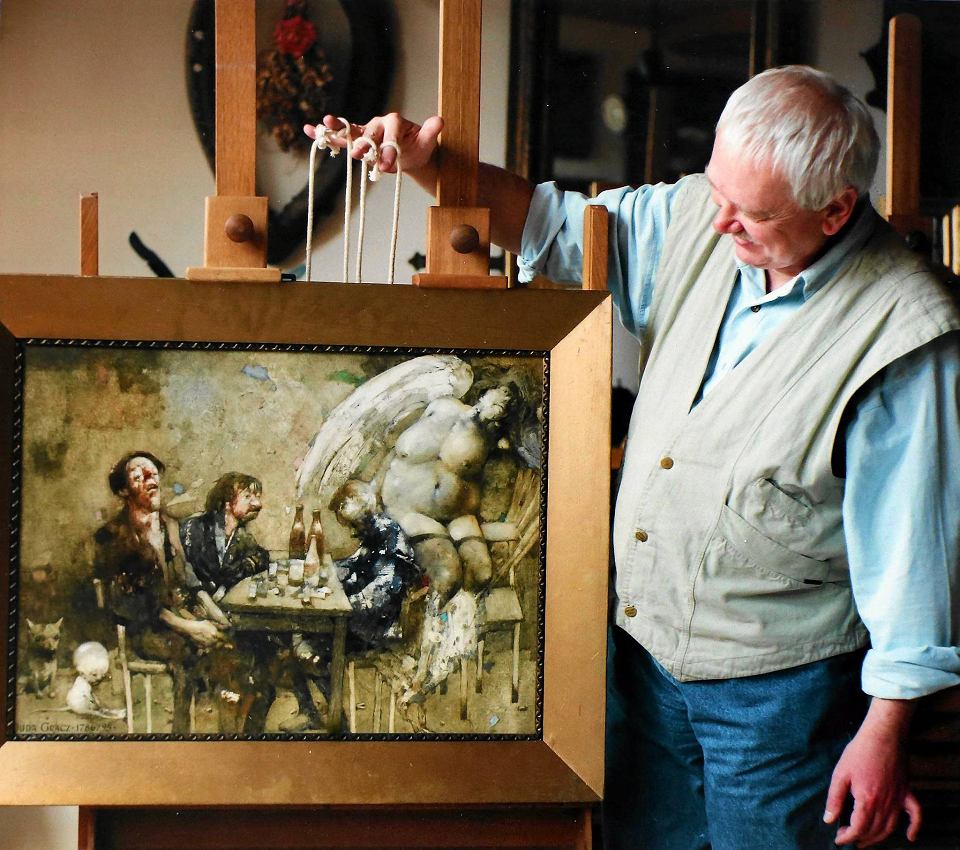


Jerzy Duda-Gracz is one of the most recognizable contemporary Polish painters, known for his grotesque realism and satirical commentary on reality. He was born in 1941 in Częstochowa and completed his art studies at the Faculty of Graphics at the Kraków Academy of Fine Arts branch in Katowice, where he later also taught. His distinctive portrayals of figures, often caricatured and ironic, became the hallmark of his work.
Duda-Gracz addressed social and political themes in his art, combining them with a sentimental approach to the "world that is fading away." He was critical of Polish reality, exaggerating social flaws and deforming the physiognomies of his characters. His monumental series Golgota Jasnogórska (2000–2001), created for the Pauline monastery at Jasna Góra, garnered acclaim, although it initially received mixed reviews.
The artist created many significant painting series, such as Polish Motifs, Polish Portraits, Polish Landscapes, and the monumental To Chopin series, which included over 300 canvases. In his work, he referenced Dutch realism and the grotesque style of Poland's Young Poland movement, drawing inspiration from the works of Witold Wojtkiewicz. Jerzy Duda-Gracz passed away on November 5, 2004, in Łagów, leaving behind a rich artistic legacy that continues to inspire future generations of artists.